
Mayor Adanech Abiebie’s administration has frozen efforts to register plots by farmers in the peripheries of Addis Abeba following reports of fraud.
The suspension coincides with an announcement that municipal authorities have agreed with administrators of the Oromia Regional State to finalise the demarcation of the administrative boundaries between the capital and special zones under the regional state. Officials claim that the demarcation would settle simmering disputes over farmlands on the city’s edges.
The registration had begun last month, with the authorities hoping to register plots held by close to 34,000 farmers in six of the capital’s districts within three months. The Addis Abeba Land Development & Management Bureau deployed its experts to assist district offices with the registrations.
However, Jemal Aliye, head of the Bureau, suspended the work two weeks ago.
Tesfaye Chane, the Bureau’s director for landholding affairs, disclosed that the experts came across numerous controvertible documents submitted by farmers to prove land-use rights. The number of farmers identified for inclusion in the registration rose by over 3,000 from the initial estimate, the director disclosed. The Bureau and the city’s Urban Agriculture Development Commission were tasked to verify the authenticity of these documents.
Land authorities had initially introduced a directive that allows farmers within the capital’s boundaries to receive landholding certificates in March 2021. They planned to use the registrations as input when they began issuing the certificates. The directive, which was hoped to boost confidence in land tenure security, also gave formal recognition to houses built on farm plots of up to 500Sqm.
Tens of thousands of farmers in the capital’s peripheries are believed to have been displaced over the past two decades to give way for public housing projects and real estate developers. Close to 32,000 farmers in five districts have been displaced or forced to hand over part of their plots since 2017. Many were forced to abandon their livelihood in agriculture to be employed as daily labourers, maids and security personnel after consuming the nominal compensation they received for their losses.
Gelane Girma, a father of six, has ceded land to public housing projects. A resident in Wereda 10 of the Aqaqi-Qality District, he surrendered a 10hct plot in 2016 for constructing the Koye Fiche condominium site in the southeastern fringes of Addis Abeba. The housing project comprises over 10,000 units. Gelane hoped receiving a landholding certificate could help him transfer part of his remaining two hectares to his children.
“I wanted to pass the land on to my children,” he told Fortune.
His hopes have been put on hold.
Addisu Balcha, the District’s director for land transfer and administration, disclosed the registration process was paused after experts found “suspicious documents” submitted by applicants. Close to 3,000 farmers have filed documents before his office last year.
Kuma Tusa, head of the land office at Bole District, told Fortune the registration process was suspended even before his experts set out on the task.
It is not the first time the authorities have attempted to formalise landholdings on the capital’s edges. Three years ago, local administrators asked farmers to present documents that showed the land belonged to them.
“We haven’t heard anything from them since,” he said.
The Ministry of Urban Development & Infrastructure (MoUDI) is amending an eight-year-old law that governs urban landholding registration to incorporate the capital’s farmlands under the urban cadastre system. The lack of documentation that proves ownership is the major obstacle to incorporating farmlands under the urban landholding system, according to Adem Redi, an urban planner lecturing at Kotebe Metropolitan University.
“These holdings aren’t included in the official land registry system,” he said. “Any effort to legalise farmlands will not bear fruit.”
Gelana has no documents to prove the land belongs to him, except for tax receipts.
The lack of legal recognition puts leaseholders in a precarious position. It exposes farmers to below-market compensation rates when their plots are appropriated for public projects. Gelane was paid 18 Br for a square metre when he ceded land to the condominium project.
The City Administration attempted to raise compensation rates through a directive issued two years ago. It fixed the rate at 242 Br a square metre. Two months ago, the 45-member city cabinet decided to compensate hundreds of farmers in the capital’s peripheries who have lost land for infrastructure development, roads, and public housing projects. The compensation is estimated to cost city taxpayers 50 million Br.
PUBLISHED ON
Sep 03,2022 [ VOL
23 , NO
1166]
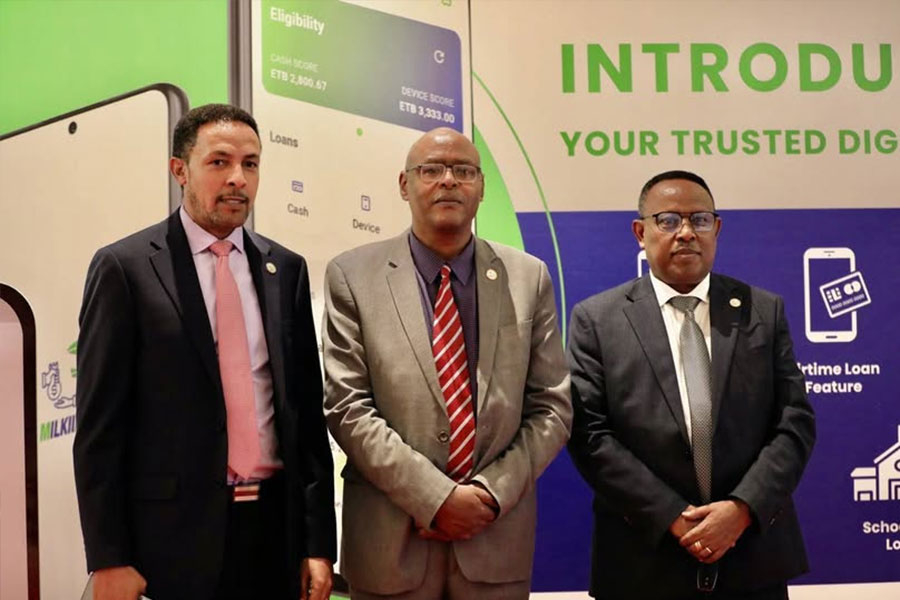
Radar | Jun 01,2025
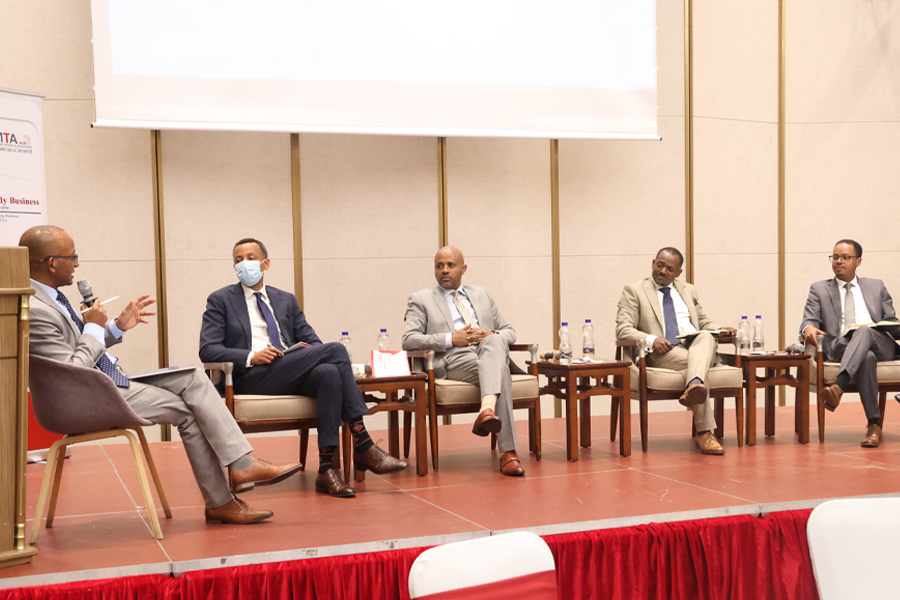
Radar | Oct 05,2024
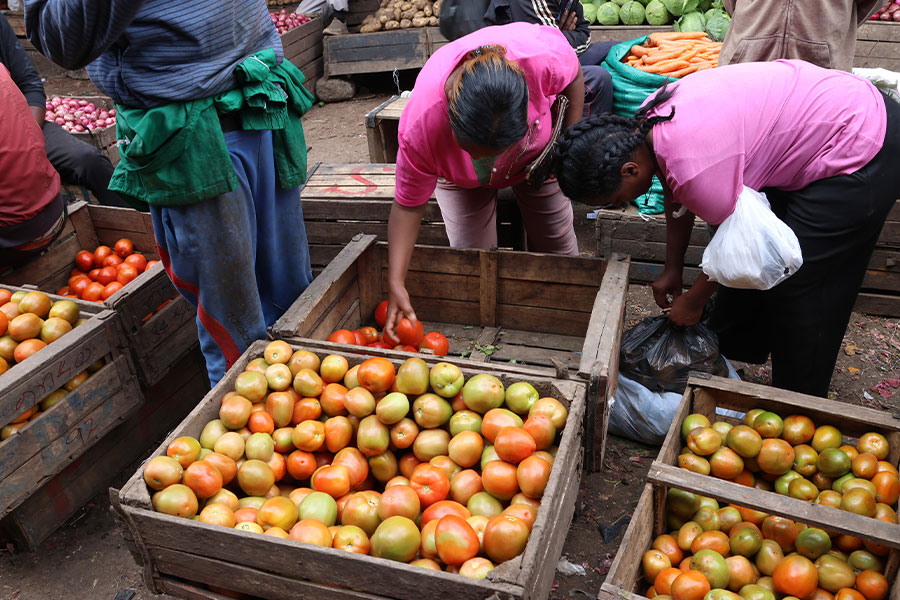
Agenda | Oct 12,2025
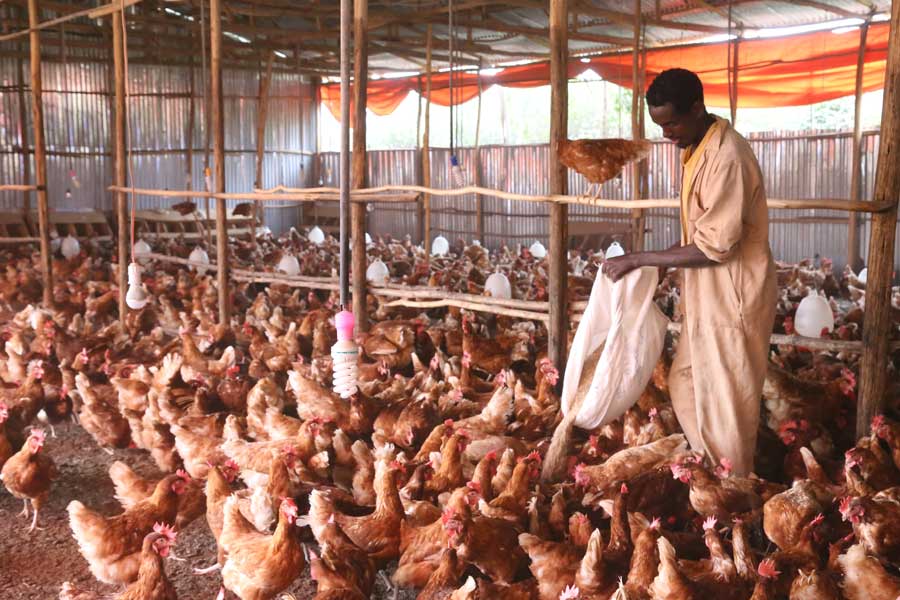
Fortune News | Jul 25,2020

Fortune News | Nov 24,2024

Delicate Number | Sep 20,2025


Commentaries | May 24,2025
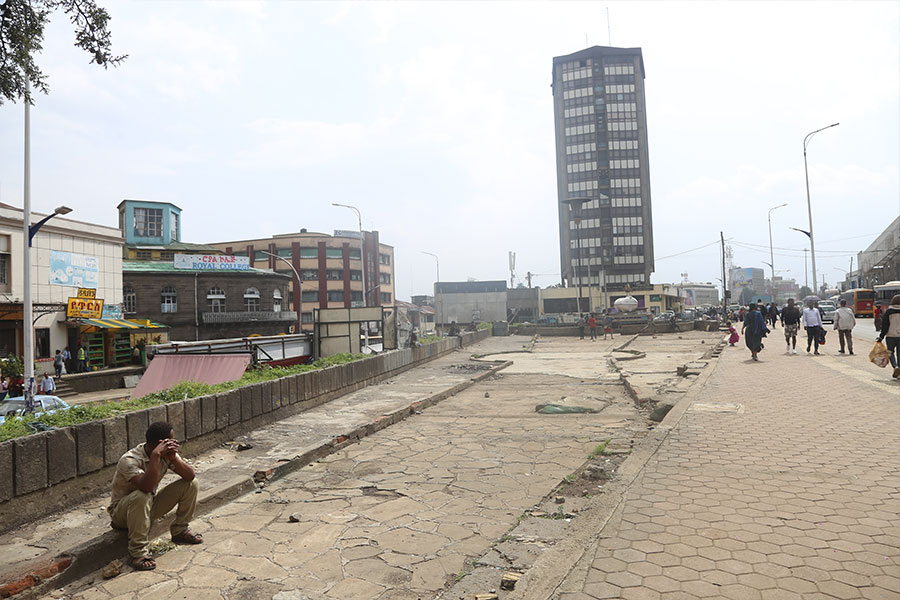
Radar | Jun 12,2023
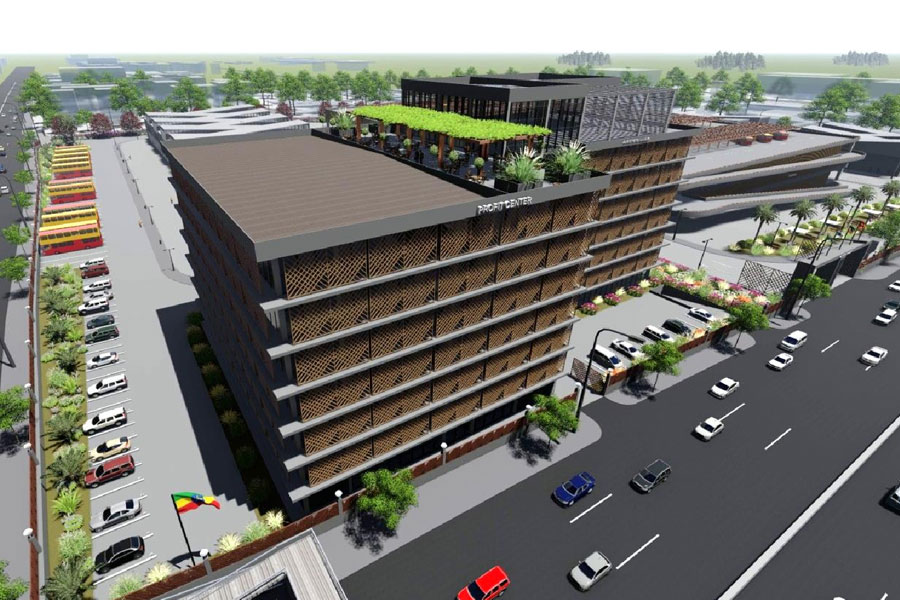
Fortune News | Feb 02,2019

Dec 22 , 2024 . By TIZITA SHEWAFERAW
Charged with transforming colossal state-owned enterprises into modern and competitiv...

Aug 18 , 2024 . By AKSAH ITALO
Although predictable Yonas Zerihun's job in the ride-hailing service is not immune to...

Jul 28 , 2024 . By TIZITA SHEWAFERAW
Unhabitual, perhaps too many, Samuel Gebreyohannes, 38, used to occasionally enjoy a couple of beers at breakfast. However, he recently swit...

Jul 13 , 2024 . By AKSAH ITALO
Investors who rely on tractors, trucks, and field vehicles for commuting, transporting commodities, and f...

Nov 1 , 2025
The National Bank of Ethiopia (NBE) issued a statement two weeks ago that appeared to...

Oct 25 , 2025
The regulatory machinery is on overdrive. In only two years, no fewer than 35 new pro...

Oct 18 , 2025
The political establishment, notably the ruling party and its top brass, has become p...

Oct 11 , 2025
Ladislas Farago, a roving Associated Press (AP) correspondent, arrived in Ethiopia in...